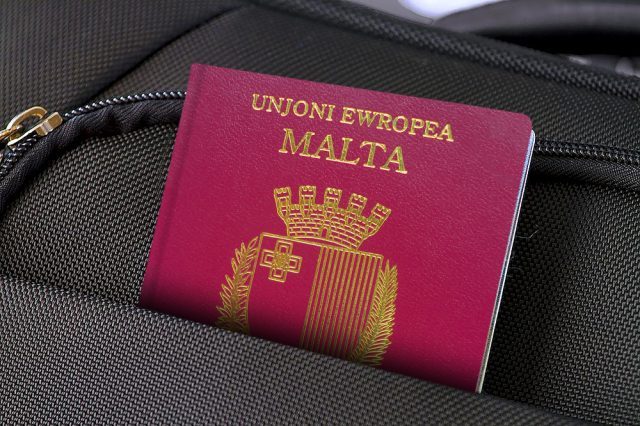
The European Commission has decided, Malta will be referred to the European Court of Justice over the ‘golden passports’ affair. At the end of 2013, in the island state at the centre of the Mediterranean Sea, a law came into force granting Maltese citizenship to those able to pay 650,000 euros, to be paid into the government’s Development Fund.
That sum was needed to obtain citizenship, with no further investment and no obligation to reside on the island. The law, strongly desired by the then Prime Minister Joseph Muscat, was mainly aimed at decreasing the Maltese public deficit: the estimate was 30 million a year.
Unfortunately, by paying that large sum of money, anyone could obtain a ‘golden passport’, which allowed residency rights in any EU member state.
The granting of passports and golden visas is a scheme also adopted by other European nations in recent years, such as Cyprus, Bulgaria, Greece, Portugal. However, acquiring Maltese citizenship by simply paying into the government fund has been much easier than the regulatory frameworks applied by other countries.
This also led to the emergence of several journalistic investigations, which brought to light embarrassing scandals for the EU.
In 2019, two journalists from the Reuters news agency, through their investigative report ‘Khmer Riche. How relatives and allies of Cambodia’s leader amassed wealth overseas‘, described how relatives and allies of the Cambodian regime amassed tens of millions of dollars abroad thanks to gold passports.
In another investigation, in 2017, the British newspaper The Guardian published a long list of beneficiaries of this scheme, including several Russian oligarchs.
Malta stopped granting this privilege to Russian and Belarusian citizens, but did not fix the general structure of the law that remains in place for wealthy citizens of other nationalities.
Already in 2020, the Commission sent a letter of formal notice to Malta, asking it to terminate its citizenship programme for ‘investors’. Subsequently, the Commission sent another letter of formal notice to Malta on 9 June 2021.
In March this year, the EU Commission and the European Parliament intensified pressure on the Republic of Malta, which refused to publish the list of Russian citizens benefiting from this system, threatening sanctions.
The EP declared in a statement that golden passports are ‘questionable from an ethical, legal and economic point of view and entail numerous serious security risks’. The EP also called for the creation of new common rules to deal with the problems of ‘citizenship and residence for investment’ schemes and to stop what is de facto the offering for sale of EU citizenship.
Before referring Malta to the Court of Justice of the European Union, the European Commission has sent Malta a final warning regarding the ‘golden passport’ scheme.
The European Commission considers that Malta’s arrangements for granting citizenship are incompatible with Article 4 – paragraph 3 of the EU Treaty, which establishes the principle of loyal cooperation. The Commission also referred to Article 20 of the Treaty on the Functioning of the European Union, which establishes rights and duties relating to the possession of European citizenship for nationals of EU Member States.
For nearly a decade corrupt politicians, members of bloody dictatorships and organisations suspected of terrorism have had a ‘Trojan horse’ in Europe. In this way they have bypassed sanctions and controls, laundering money and investing it, thanks to the privileges of obtaining European citizenship for themselves or their front men, through investment programmes.
Today this ugly story seems to be coming to an end. It is clear that such procedures are dangerous for the security of the EU and individual Member States, especially in a time of crisis like the one we are currently experiencing. They are also debasing the great privilege of being a European citizen, which must be protected and for which many people, who go through ‘regular’ procedures in the Member States, have been waiting for years.



 Subscribe
Subscribe